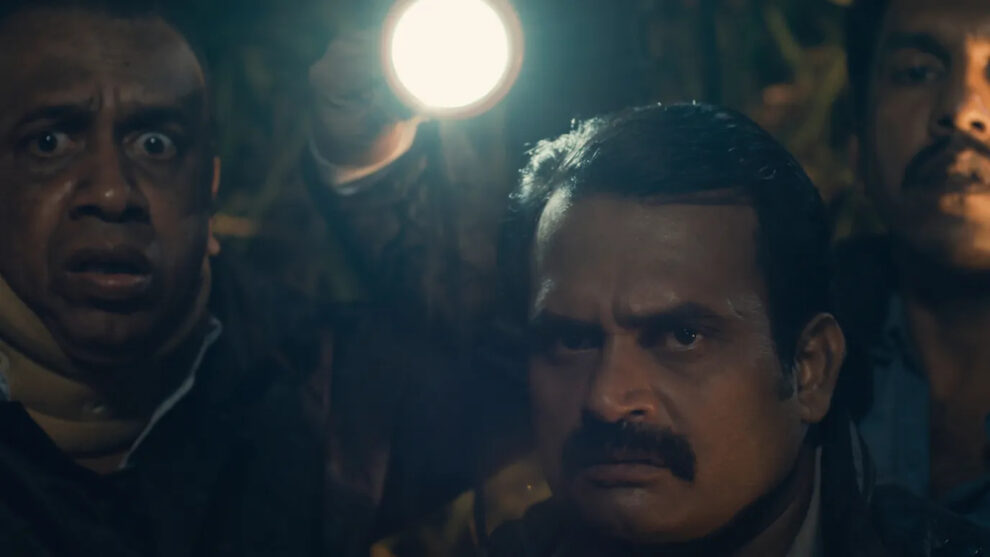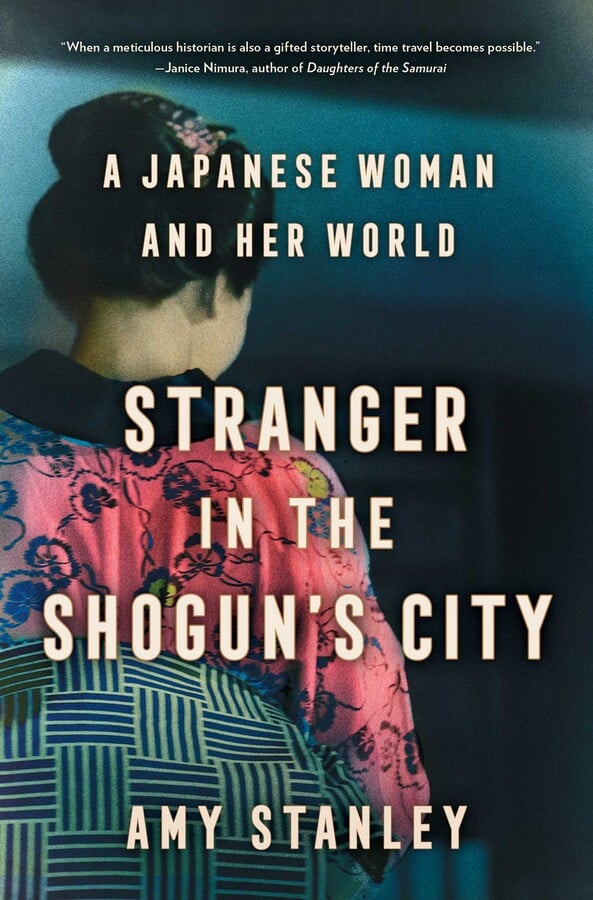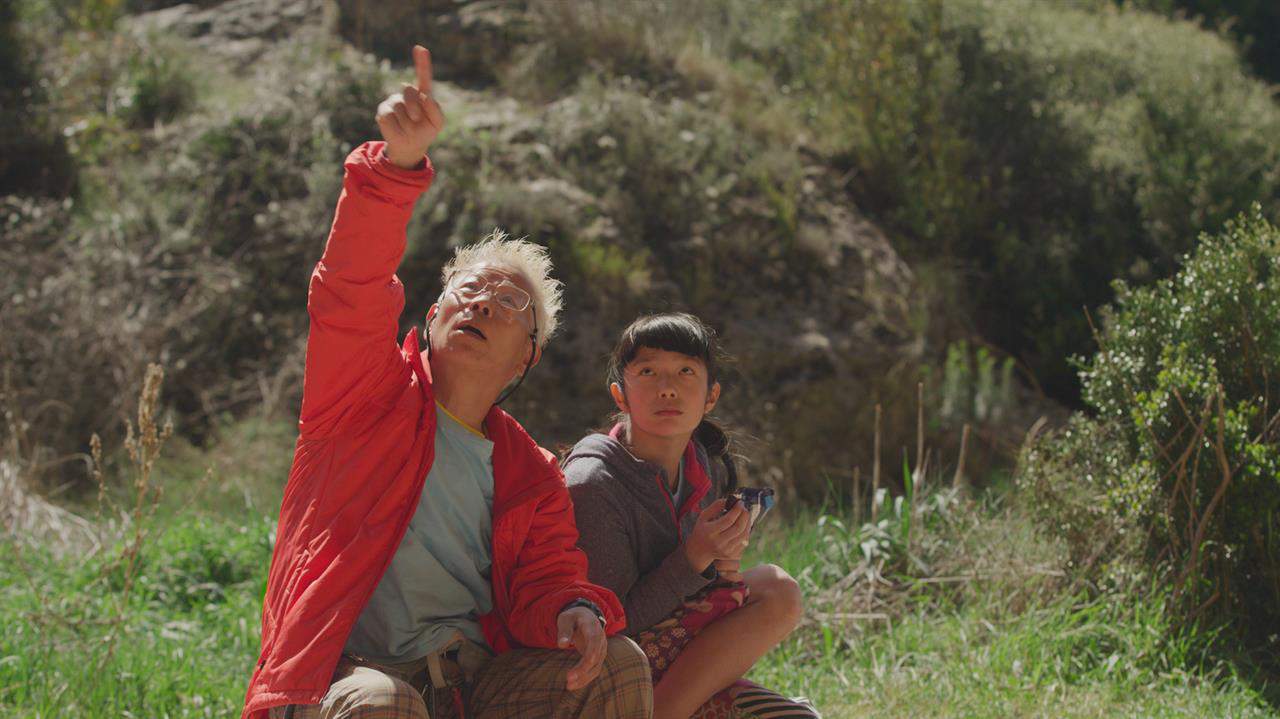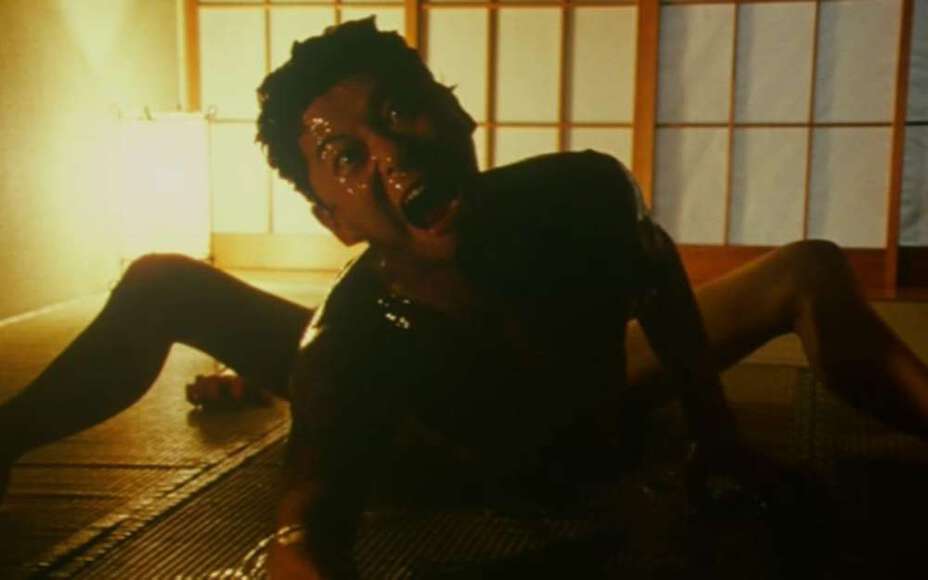The recent story of Sri Lanka is one of violence and youth insurrection, with the the Black July riots of 1983, the 1994 discovery of a mass grave in the Sooriyakanda Mountain range, the 30-year Eelam War and the 2022 Protests all seeming like parts of the same cycle. All these insurrections were put to end through the government's militant force, without, though, ever addressing their roots, which can also be perceived as the source of their repetition. The families of the victims, from the 80s to the 00s never got justice, or even news about the fate of their children, in a trauma that is still tormenting the country. Jagath Manuwarna, in his feature debut, explores the aforementioned also including the whole concept of Covid, in a rather unusual approach, that is equally funny, ironic, dramatic, and violent.
The story begins with a virus spreading across Sri Lanka, supposedly causing young people to commit suicide. The authorities promise to contain the epidemic in any way possible, which, in this case, means implementing ancient rituals they claim are the only solution to the problem. Soon, however, it becomes evident that the “virus” is actually a series of uprisings by youths, with the government setting up anti-rebellion units that capture youths and slay them in ritualistic fashion. The story then changes focus towards an abandoned building, where such a unit are preparing a series of bodies for a burning, while two recently captured ones, Prasanna and Mahdian, are waiting their turn. Eventually though, violence finds its way into the group from the outside, and the subsequent tensions turn it towards the inside.
Check also this interview
Jagath Manuwarna directs a film that aims at showing the ridiculousness of the government's tactics, and to highlight how their violent ways have impacted the country, with this part being the main source of drama in the movie. In that fashion, the ironic and humoristic scenes, which aim at showing the absurdity of the government forces and of the religious “leaders” that accompany them, are followed by scenes of intense violence, whose depiction occasionally becomes shocking. At the same time, another axis, of a grieving father waiting for his son and finding his only solace in the bottle, moves in between the two aforementioned, also in its placement within the narrative, in an aspect that highlights the rather intelligent directorial approach of Manuwarna.
The same applies to the way the aforementioned varying aspects of the narrative give their place to one another, with the ludicrousness and irony giving their stead to the violence and the drama in the most impressive fashion, in a way that the viewer does not know if they are to laugh, cry or be shocked. That this ambiguity actually ends up being the driving force behind the entertainment the movie emits, in an equal trait of the direction here, while also highlighting the impressive job done in the editing by Sankha Malwaththa.
At the same time, there are a number of scenes where the violence truly goes overboard, with the one in the bathroom seeming as if out of a grindhouse movie, and a number of others following close by. That these scenes are juxtaposed with the beauty of the Sri Lankan scenery and the particular mountain most of the story takes place in, emerges as yet another trait of the film, that additionally showcases the impressive job in the cinematography by Vishwajith Karunarathne.
The whole of the cast embody all the aforementioned in the best fashion, but the one who truly stands out is Sarath Kothalawala as the leader of the group of seven, who manages to mirror the intricate mixture Manuwarna wanted to present here in the most fitting fashion.
“Whispering Mountains” is an impressive movie that manages to present the ridiculousness of authority-driven violence through an approach that is equally shocking and funny, in one of the best cinematic amalgams we have seen during the last few years. Lastly, the fact that drama is the element that closes the movie, adds even more to the quality of a title that definitely manages to get its messages through.
















